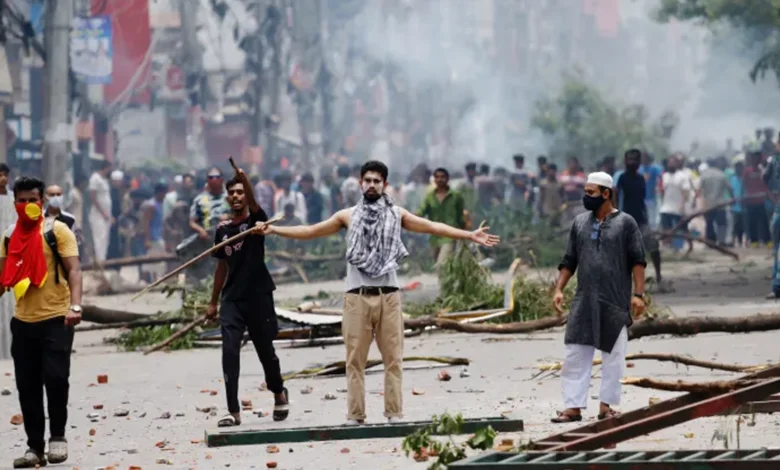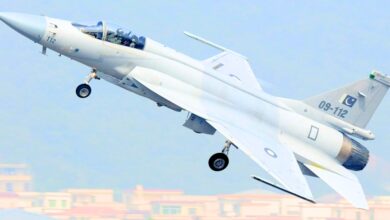
Bangladesh to Enforce Curfew, Deploy Army Amid Escalating Protests
Bangladesh to Enforce Curfew, Deploy Army Amid Escalating Protests Bangladesh Government to Enforce Nationwide Curfew and Deploy Army Amid Escalating Protests
On Friday, BBC Bangla reported that the Bangladesh government, led by Prime Minister Sheikh Hasina, has decided to impose a curfew across the country and mobilize the army in response to widespread student-led protests against government job quotas.

Nayeemul Islam Khan, the prime minister’s press secretary, indicated that an official decision on the curfew would be forthcoming.
Violence has intensified, with three fatalities reported on Friday as police confronted demonstrators despite a ban on public gatherings. Reuters journalists observed police using tear gas to disperse protesters in various areas of the capital city, Dhaka. The unrest has resulted in fires and disruptions to telecommunications and television broadcasts, with some mobile services previously cut to quell the turmoil.
According to Prothom Alo, nationwide train services were suspended due to road blockades and clashes between protesters and security forces involving brick-throwing incidents.
The protests initially centered on student dissatisfaction with quotas reserving 30 percent of government jobs for families of those who fought for Bangladesh’s independence from Pakistan. The unrest, marking the largest since Hasina’s recent re-election, has also highlighted broader issues such as high youth unemployment and economic challenges.
International scrutiny and criticism have intensified, with rights groups and the European Union expressing deep concern over the violence and emphasizing the need for a peaceful resolution respecting democratic freedoms and the rule of law.
While India described the unrest as an internal matter for Bangladesh, tensions linked to the protests have even surfaced in London among the Bangladeshi diaspora.
Communication disruptions persisted on Friday, with internet and overseas calls severely limited, and several Bangladeshi news websites and state broadcaster BTV experiencing outages. The central bank, prime minister’s office, and police websites appeared to have been hacked, displaying messages condemning government actions and the shutdown of internet services.
Despite government offers for dialogue, many opposition leaders, activists, and student protesters reportedly faced arrests, although Reuters could not independently verify these claims.






